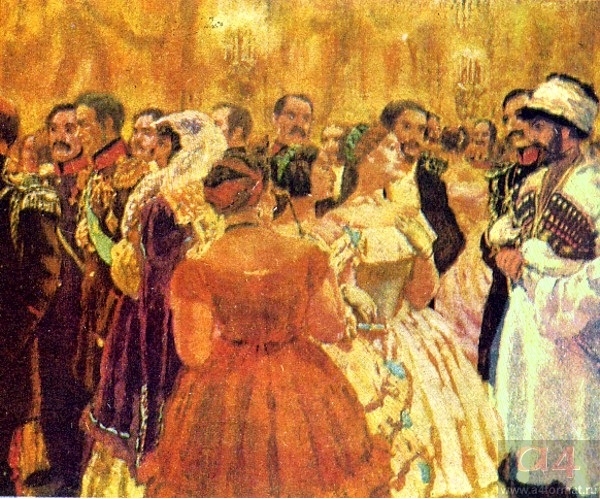Fyodor Dostoevsky’s Crime and Punishment is among the most accessible “classics” of world literature because its tale of murder and its consequences is immediately exciting. All the same, it took me about three attempts before I first finished it. I am now reading it a third time, and each time I feel I understand the book a little better. So far, I have read the first two parts of the book’s six, and I am already overflowing with impressions and observations that I would like to share. The book is so thought-provoking, that simply writing a post at its completion would be to do it an injustice.
World of Decay
I think the thing that has struck me the most this time round is just how grim and depressing the world of Crime and Punishment really is. Within the first two parts we have Marmeladov’s death, an attempted suicide, and plenty of other suggestions of abuse and suffering, not to mention the murder of the pawnbroker which forms the heart of the work.
Colour
Part of this grimness is delivered through Dostoevsky’s use of colour, especially the colour yellow, the traditional colour of sickness and decay. When we find it throughout the entire world of Crime and Punishment’s Saint Petersburg we are left with the feeling that the world itself is falling to pieces. We have Raskolnikov’s wallpaper, the “yellow glass filled with yellow water” that he is given at the police station, the yellow face of the woman who attempts suicide, Sonya’s yellow ticket legalising her work as a prostitute, and most memorably, the “ominous yellowish-black spot” that marks Marmeladov’s fatal wound from the horse’s hoof. There is also the red of blood. When Raskolnikov awakes in the beginning of part II he worries that his clothes are covered in it. Then, when he meets a member of the police later on, he is drenched in it – but in this case it’s Marmeladov’s.

Clothes and Money
But colour is not the only thing that gives this world its feeling of decline. Money is constantly in focus in these early chapters, whether it be the landlady’s demands for rent, or else Marmeladov’s suffering family watching him drink his salary away, or else of course the pawnbroker herself with her miserliness. Like the characters themselves, who are always on the brink of destitution, we are unable to avoid reading about money in these chapters. Clothing in Crime and Punishment has a similar role, making us aware of the essential poverty of most of its characters. Razumikhin’s joke when he shows Raskolnikov the new clothes he has bought him, that “we have to make a human being out of you”, nonetheless expresses a fundamental truth about poverty’s ability to dehumanise its sufferers. These people can barely even dress themselves with dignity.
Women
But I think the final sign of decay that I’ve found hardest to avoid is Dostoevsky’s representation of women. In Crime and Punishment the women we come across are exclusively downtrodden and suffering. The differences between them concern simply whether they try to maintain some kind of dignity, like Raskolnikov’s mother and Marmeladov’s wife, or fail to, like the woman on the bridge who attempts suicide. Once, we meet a group of them: “some were over forty, but there were some younger than seventeen; almost every one of them had a black eye”. Dunya, Raskolnikov’s sister, suffers for him in a horrible job in their hometown. Sonya, likewise, suffers for her own family. Only by taking economic responsibility onto themselves to try to save others can the women have a chance of saving themselves. Even Nastasya, Raskolnikov’s comparatively not-falling-apart maid, has a “morbidly nervous laughter”. Everyone’s on edge here.
Crime and Punishment as a Horror Movie
Connected with the feverish yellow world of Crime and Punishment is the feeling I have had with this reading that Dostoevsky’s novel has a particularly intense portrayal of reality and bodies not far from their portrayal in works of horror, especially movies. Of course, there is the dinginess of the world, but there is also the murder itself. When Raskolnikov stands outside the pawnbroker’s door, he feels that “someone was standing silently just at the latch, hiding inside and listening, in the same way as he was outside, and also, it seemed, with an ear to the door…” Perhaps I am not explaining it well, but what I mean is this image of fear and closeness to mortal peril is just the sort of thing that we see in Alien when the xenomorph is right next to Ripley, but not yet aware of her.

The incomprehensibility of violence is also an example of this. Raskolnikov’s terrifying dream, when he witnesses the brutal murder of a horse for very little reason, corresponds to that lurking question always present in horror movies with a vaguely humanoid villain – why? Why is this happening, why does this have to happen? When Raskolnikov is forced to kill the pawnbroker’s sister we are faced with another such moment, when the “why” we previously had – to give the crone’s money away to those who need it – is suddenly rendered inadequate, now that it seems to require a wholly innocent victim as well.
Dostoevsky’s language in Crime and Punishment has its own violent intensity too, such as when Raskolnikov feels “as if a nail were being driven into his skull”, or when he looks like he “had just been released from torture”. Our murderer’s mental tension is the same tensed suspense of a good horror movie, where danger is just around the corner.
Ideas and Responsibility
And then there are the ideas. I would not like to go into too much detail before I have finished the book, but I’d at least like to make some observations on the chessboard as it sits before me, as it were.

For in Dostoevsky, there is always a war between ideas. We have by this point been introduced to one of Raskolnikov’s motivations in killing – that he could do some good with it by giving away the old woman’s money. But this theoretical approach has already come up against the unpredictability of the world – firstly in that he didn’t succeed in escaping with the money, secondly in that he was forced to kill the sister. Meanwhile, Razumikhin and Luzhin have already began arguing about the new ideas of progress, economic and otherwise. Extreme and self-centred rationality, we have already heard, will lead people to think it’s okay to put a knife into people. Obedience to much to a system is dangerous, as the wonderful image of Raskolnikov being dragged forwards, “as if a piece of his clothing had been caught in the cogs of a machine”, illustrates.
Glimpses of Redemption
Even as these two initial parts show some of the depths of the human soul, they also begin laying the foundations for later redemption. Raskolnikov’s isolation at the police station, “a dark sensation of tormenting, infinite solitude and estrangement suddenly rose to consciousness in his soul”, which is “more a sensation than an awareness, an idea”, is important for giving us understanding of the way that life is feeling just as much as it is idea. Marmeladov, in some way a double of Raskolnikov – they both have close encounters with horsemen and their whips – in his dying moments comes to understand the sacrifice that his family have made for him, and in doing so finds an implicit redemption, when he sees Sonya, “humiliated, crushed, bedizened, and ashamed”, for the first time in her prostitute’s garb. It is too late to change for life, but not too late for death.
Raskolnikov, meanwhile, through giving his money to Marmeladov’s family, has also found “a new, boundless sensation of a sudden influx of full and powerful life”. He has not found redemption yet, but he has taken his first step on the path to goodness, a journey that for me at least makes this novel so great.
Conclusion
For all this seriousness, I almost forgot to mention the humour in Crime and Punishment. Because this time round I’ve really started to find the whole thing quite funny. From this lovely exchange between Nastasya and Raskolnikov (one familiar, no doubt, to my fellow students) –
"Why don’t you do anything now?” “I do something…” Raskolnikov said, reluctantly and sternly. “What do you do?” “Work…” “Which work?” "I think.”
– to her comments when Raskolnikov awakes “And, what’s more, you were extremely interested in your own sock, extremely!”, with its equal measure for readers of humour and horror, Crime and Punishment is a hilarious book.
But the questions of guilt and redemption that lie at the heart of it are, and have always been, the ones that most appealed to me. I guess it was my Catholic upbringing that made me particularly aware of my own moral failures and need to atone for them, but I’ve always found these topics in literature, and elsewhere, the most compelling. Whether it be the Amnesia video games, to Tarkovsky’s Stalker, I’ve always enjoyed art that has challenged my ideas of personal responsibility, and shown how we can, and sometimes can’t, change. Perhaps it was thanks to Crime and Punishment that the first seeds towards my eventual time spent volunteering in prison were sowed. Who knows?
What do you think of Crime and Punishment and its themes?





